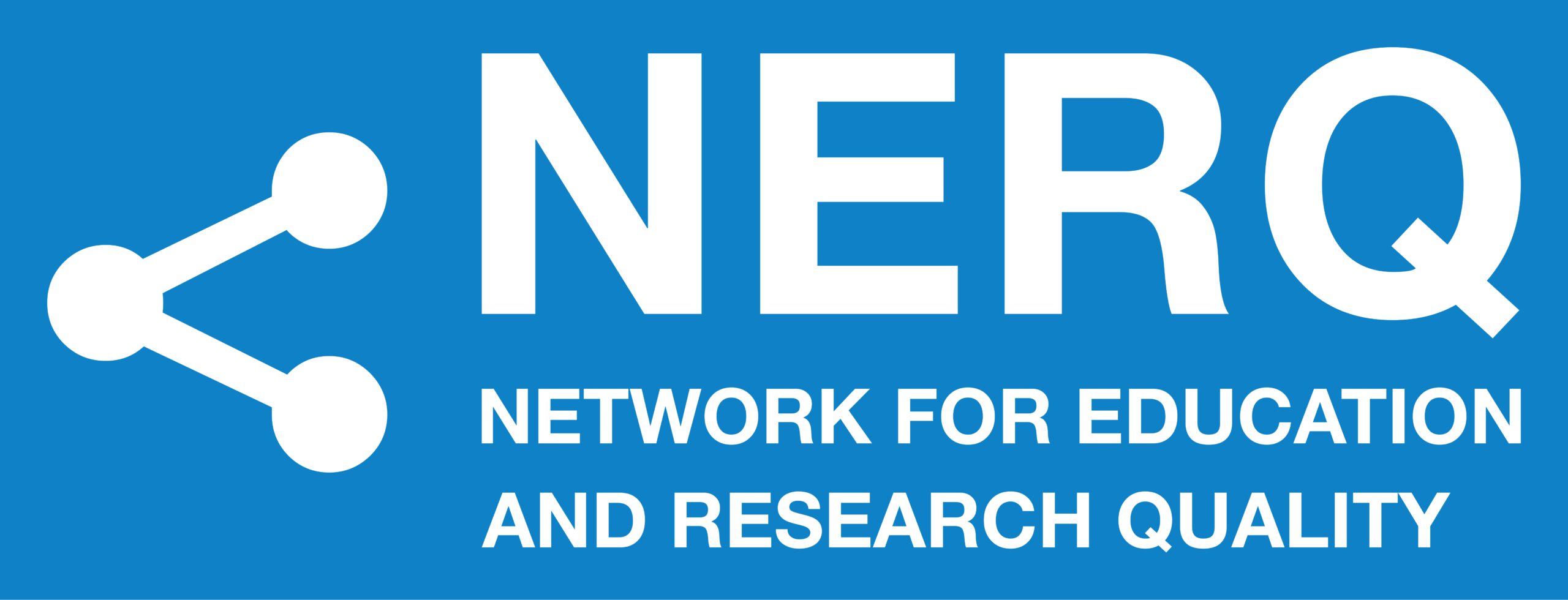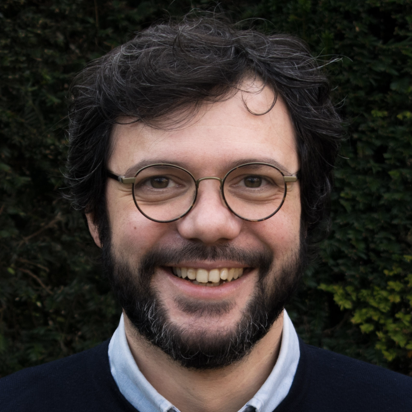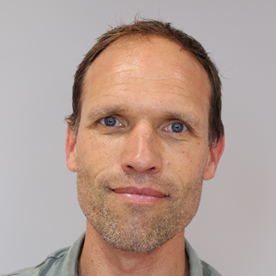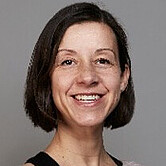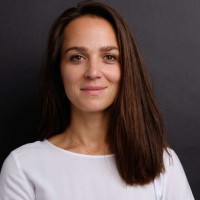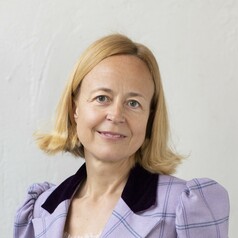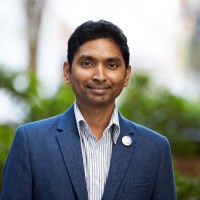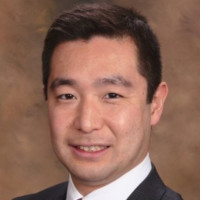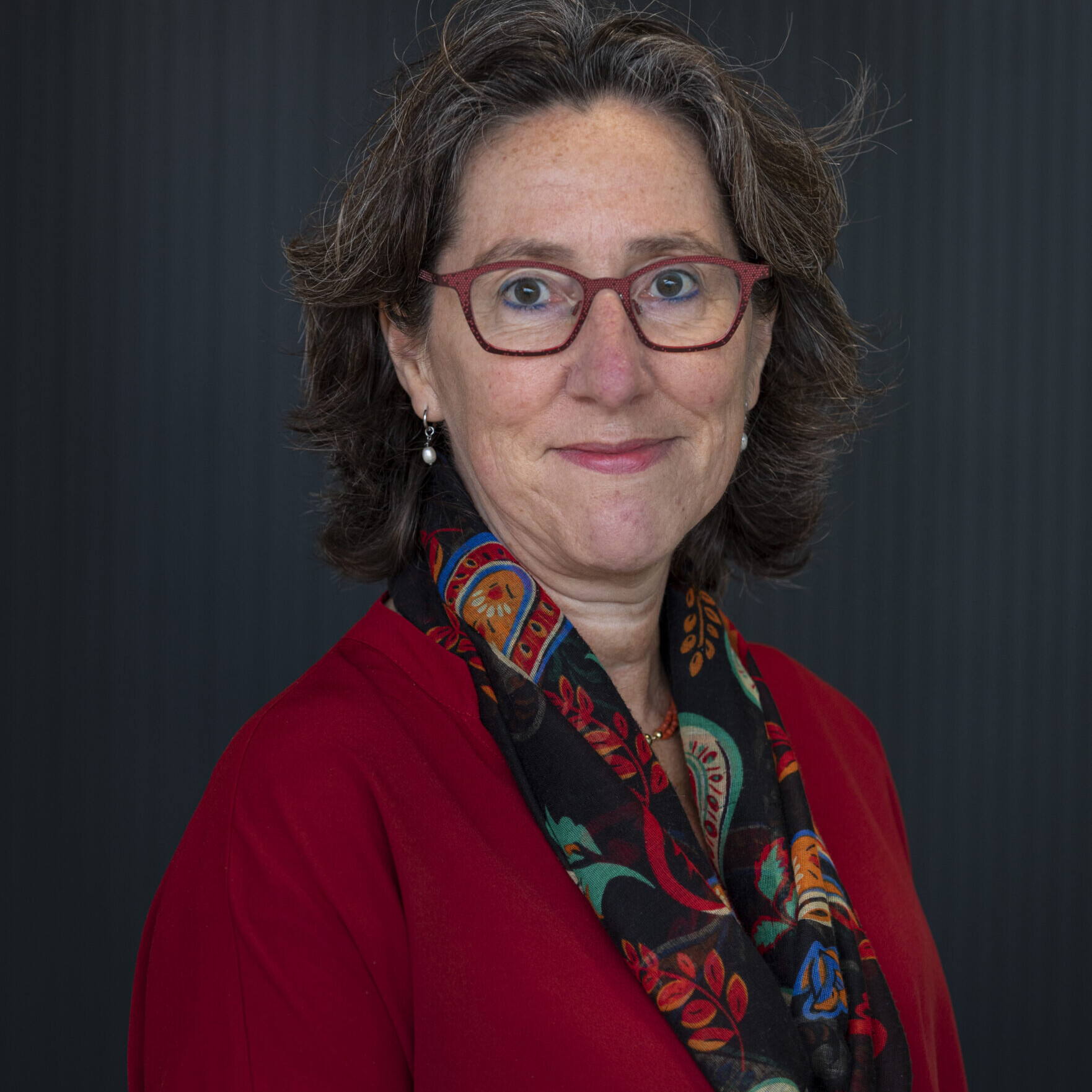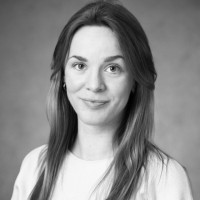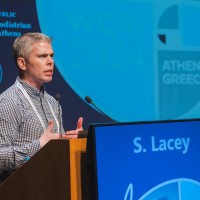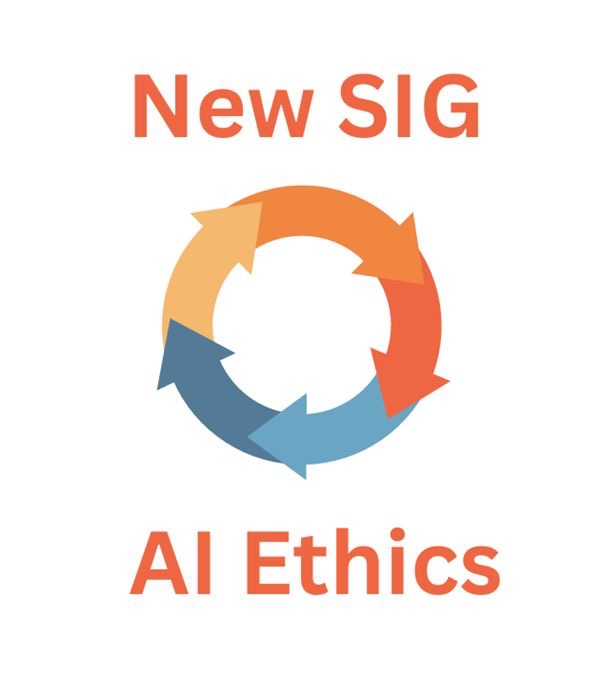Learn about NERQ Special Interest Groups
List of active NERQ SIGs:
- Academic Integrity Policies
- Early Career Researchers
- Education on Research Methodology
- Intellectual Property & Open Science
- Legal & Ethical Infrastructures for Responsible Research
- NERQ train-the-trainer Peer Coaching group
- Research Integrity & Research Security
- Research on Education
Scroll to learn about each NERQ Special Interest Group. You are welcome to contact the chair(s) to learn more about the group's activities and to become part of one or more SIG!
Academic Integrity Policies
This ENAI Academic Integrity Policies Working Group (AIPWG), which incorporates the NERQ (Network for Educational and Research Quality) Special Interest Group for Academic Integrity Policies (AIPSIG), is hereafter known as the Group.
The aim of the Group is to provide a forum for academics and researchers who are interested exploring in best practice in institutional policies for academic and research integrity.
Purpose
The principles of academic and research integrity apply to every part of an educational institution. Effective institutional policies for academic and research integrity help to reinforce and promote the institution’s culture of integrity. Crucially, integrity underpins and supports educational quality and standards; conversely lack of integrity inevitably undermines institutional quality and standards. An institutional culture of integrity helps to create an atmosphere of trust that permeates the institution. There is an expectation that graduates from that institution will develop ethical decision-making skills that they will be able to apply in their professional, public and private lives, thereby positively influencing society as a whole.
Objectives
- To meet regularly online (where possible, monthly) to discuss developments related to academic and research integrity policies;
- To share and promote good practice in policy design, development and revision;
- To provide support and information to help members to develop effective institutional policies and procedures that are tuned to their institutional needs;
- To develop proposals for research projects and to conduct research relating to policies for academic and research integrity;
- To develop and share materials and expertise relating to academic and research integrity policies;
- To share research findings and resources from this group, through webinars, summer schools, training events, conferences and scholarly publications.
Meetings
The Group endeavours to hold an online meeting once per month, lasting between 60 and 90 minutes, between September and June, with a break for summer. The meeting agenda normally includes updates from members and a short presentation from a member or guest speaker on a relevant topical subject. To accommodate the different time zones of our geographically dispersed members, we normally begin the meetings at 15:00 GMT / BST.
Would you like to join the NERQ SIG on Academic Integrity Policies? Please contact Dr. Irene Glendinning (Chair)
Chair
Early Career Researchers
Would you like to join the NERQ SIG on Early Career Researcher? Please contact Dr. Daniel Pizzolato (Chair)
Early career researchers (ECRs) are individuals at the beginning of their research careers. This group typically includes PhD candidates as well as researchers who obtained their doctorate within the past ten years. This group also includes master’s students at the start of their research trajectory.
The SIG group on ECRs have three goals:
- Increasing research ethics and integrity competences in ECRs via training, supervision and mentorship practices
- Evaluating training sessions focusing on ECRs to improve current training materials
- Evaluating whether ECRs with research ethics and integrity competences can mentor more senior colleagues whit low or no research ethics and integrity skills. Reverse mentoring can be also helpful to enhance the collective research integrity climate and foster discussion across career levels on research ethics and integrity topics.
This three objectives can be interconnected and complementary to the work done by other SIGs.
Chair
Education on Research Methodology
What is the Special Interest Group about?
Research quality and a common understanding of research integrity are influenced by different factors, many of which are represented by the different special interest groups of NERQ. To increase robustness, transparency and reproducibility, our group focuses on “Education of Research Methodology” in higher education teaching.
Research methodology involves the key decisions of a systematic research process, starting with the research idea and ending with publication. It allows for the critical evaluation of a study’s overall validity and reliability.
The overarching long-term aim of our SIG is to align best practices for teaching research methodology across disciplines and countries.
Why was this Special Interest Group formed?
Research methods form a cornerstone in the research process and contribute a large part to the overall quality of research. Due to the increasing complexity of research through big data, rapid development of AI tools and software applications, the education of research methodology is more important than ever. Although teaching research methods has a long tradition, it remains very multi-faceted on different levels: Although the objectives of teaching of research methodology are uniform, the teaching content, teaching formats, time investment, curricular placement in the study program, as well as the practicability show a high variance. All members and the leads of this SIG are deeply involved in higher education teaching and research methodology. A common alignment by exchanging experience and knowledge and best practices, has a high potential to improve research quality.
How can others get involved?
Do not hesitate to contact Michiel de Boer or Silke Kniffert (see emails below) to here more and become a member of our SIG. We welcome all who are interested.
What is the future plan of the group?
In the long term, we will work on creating open education resources on teaching research methodologies, possibly resulting in a toolbox with an overview of existing formats and best practices, teaching content and information on practical implementation.
Chairs
Intellectual Property & Open Science
The new SIG on IP&OS under the leadership and co-leadership of Julia Priess-Buchheit and Marie Alavi starts in 2025. This SIG will analyse IP management and OS practices in the research ecosystem. The aim is to explore what complementary and supportive links exist between agile and fitting IP tools and the sharing of Findable, Accessible, Interoperable and Reusable (FAIR) research outputs (data, results, codes, etc.) to increase Europe’s research and innovation potential.
Reach out to Julia or Marie (emails below) if you are interested in participating in the SIG or want to know about best practices of a synergetic IP and OS approach.
Representatives of research institutions are welcome to reach out to us for collaboration and training possibilities.
Chairs
Legal & Ethical Infrastructures for Responsible Research
Mission & Aims
In an era of open science, AI, and complex research ecosystems, legal and ethical uncertainty can hinder the translation of knowledge into value. The LEIRR SIG provides a space for cross-sector dialogue and practice-based exchange to enable responsible knowledge valorisation through solid, inclusive, and legally sound foundations.
“Knowledge valorisation is not just about innovation – it’s about making research results work for society. That requires trust, responsibility, and legal clarity.”
Core Focus
- Knowledge valorisation through legal & ethical readiness
- Enhancing trust, responsibility, and legal clarity in research impact
Activities & Outputs
- Case-based Learning: Exploring ethics, compliance, and legal dilemmas in research and innovation (R&I)
- Practical Tools: Templates for DPIAs, Memoranda of Understanding (MoUs), IP clauses, consent forms
- Workshops & Roundtables: Topics include responsible AI, data sharing, dual use, CSRD
- Living Library: Curated resources to support legal-ethical valorisation
- Policy Dialogue: Contributions to EU valorisation and open science frameworks
Target Community
Researchers • Ethics & compliance officers • R&I project leaders • Legal experts • Policy-makers • Research managers • Civil society • Knowledge brokers
Value Proposition
This SIG builds capacity for:
- Compliant and ethical use of research outputs
- Frictionless collaboration across borders and sectors
- Trust-based ecosystems for open & responsible science
- Legally sound and inclusive knowledge valorisation pathways
Would you like to join the NERQ SIG on Legal & Ethical Infrastructures for Responsible Research? Please contact Dr. Katharina Miller and Dr. Vanessa Gusek (Chairs)
Chairs
NERQ train-the-trainer Peer Coaching group
The NERQ train-the-trainer Peer Coaching special interest group was created to provide a structured and safe environment for RCR/RI trainers to exchange insights and experiences and give each other feedback.
The group aims to:
- Develop and utilise an assessment tool for RCR/RI training materials, focusing on both the input (participants, learning aims, content, organisational support) and the process (delivery format, teaching methods) of the training;
- Establish a “desk coaching” community where trainers can share materials and receive feedback;
- Conduct on-site try-outs of training simulations, allowing trainers to receive immediate feedback from their peers.
Ultimately, the group seeks to cultivate a collaborative best practice sharing culture among RCR/RI trainers and improve educational practices in the field.
If you have any further questions or are interested in joining a task group or work cell, please contact us (emails below).
Chairs
Research on Education
This group continuously shares knowledge on the newest developments in research about teaching and learning responsible conduct of research.
Would you like to join the NERQ SIG on Research on Education? Please contact Professor Mariëtte van den Hoven and Dr. Miriam van Loon (Chairs)
Chairs
Closed Special Interest Groups (SIGs)
The former SIG_OS establishes a successful initiative: The Open Science Learning GATE
The Open Science Learning GATE (GATE) is an initiative that emerged from a former NERQ Special Interest Group on Open Science. Initiated in 2023, GATE was finalised as an infrastructure that supports existing initiatives by early 2025: It connects Open Science communities (from educators and researchers to infrastructure providers as well as funders and policymakers) and enables a continuous cycle of knowledge exchange between them regarding Open Science guiding thoughts, practices, values and principles.
Thus communities stay informed and update their understanding regularly in light of the constantly evolving research ecosystem, especially on new developments such as the interplay with AI, data ethics and security. GATE supports the development of research and education capacities in parallel with these changes to promote trustworthy innovation and research within the European Research Area.
The GATE team is happy to connect with Open Science communities for effective collaboration: name your specific needs via the Engagement questionnaire (link) or provide your knowledge on Open Science guiding thoughts if you are an Open Science Knowledge Creator (link).
Thank you, NERQ, for your outstanding engagement on this initiative!
More about GATE
TBD
Would you like to join the NERQ SIG on Training Supervisors and Leadership? Please contact Dr. Tamarinde Haven and Dr. Seán Lacey (Chairs)
The SIG on Training Supervisors and Leadership is closed now and has helped many in the last few years. It hosted an interactive symposium at the WCRI in Athens. Dr Seán Lacey (Research Integrity & Compliance Officer) kicked off by presenting leadership challenges and opportunities from the perspective of a leader in a new Technological University in Ireland. International expert Dr Dena Plemmons (Director of the Research Ethics Education Program, University of California) presented her experiences in curriculum development and training for leadership in research integrity. Dr Bob Siegerink (Leiden University Medical Center) provided insight into the modernisation of the system of recognition and rewards to improve the PhD experience as well as the quality of research and leadership.
Grounded in 17 focus groups, Tamarinde developed an empirical conceptualisation of a good supervisory climate. You can read more about it here: https://lnkd.in/etJczgsB.
It’s been a very rewarding experience, with together hitting some great milestones – some highlights being facilitating the virtual marketplace in March 2024 (https://lnkd.in/emTTv4cX), facilitating a symposium in the WCRI in June 2024 on Leadership in promoting a research culture with integrity in institutions, and very recently publishing our work on A Roadmap to Good Practice for Training Supervisors and Leadership: A European Perspective (https://lnkd.in/eAsVNpny).
We are happy to announce the new SIG “AI Ethics”. I will co-lead this SIG together with Katharina Miller.
We know that many NERQ members have a role teaching research ethics – but what are the implications of increasing numbers of researchers and projects using AI in their research and innovation activities? How can we, as teachers, best ensure they are equipped to undertake their work ethically? What do we need in terms of training and resources? We are also being asked to use AI ourselves in our teaching practices. What are the implications of this for the quality of education?
We want to build the SIG priorities from the ground up. Katharina Miller and I will have a first brainstorm session with SIG group members on January 13th at 10.00 CET.
Please indicate in the comments if you are interested in joining and we will send you the meeting details!
Finally, you can give us an indication of your learning needs by filling in the very short (5-10 min) survey from the AIOLIA project on AI Ethics Learning Needs: https://lnkd.in/eYYaTRW9
